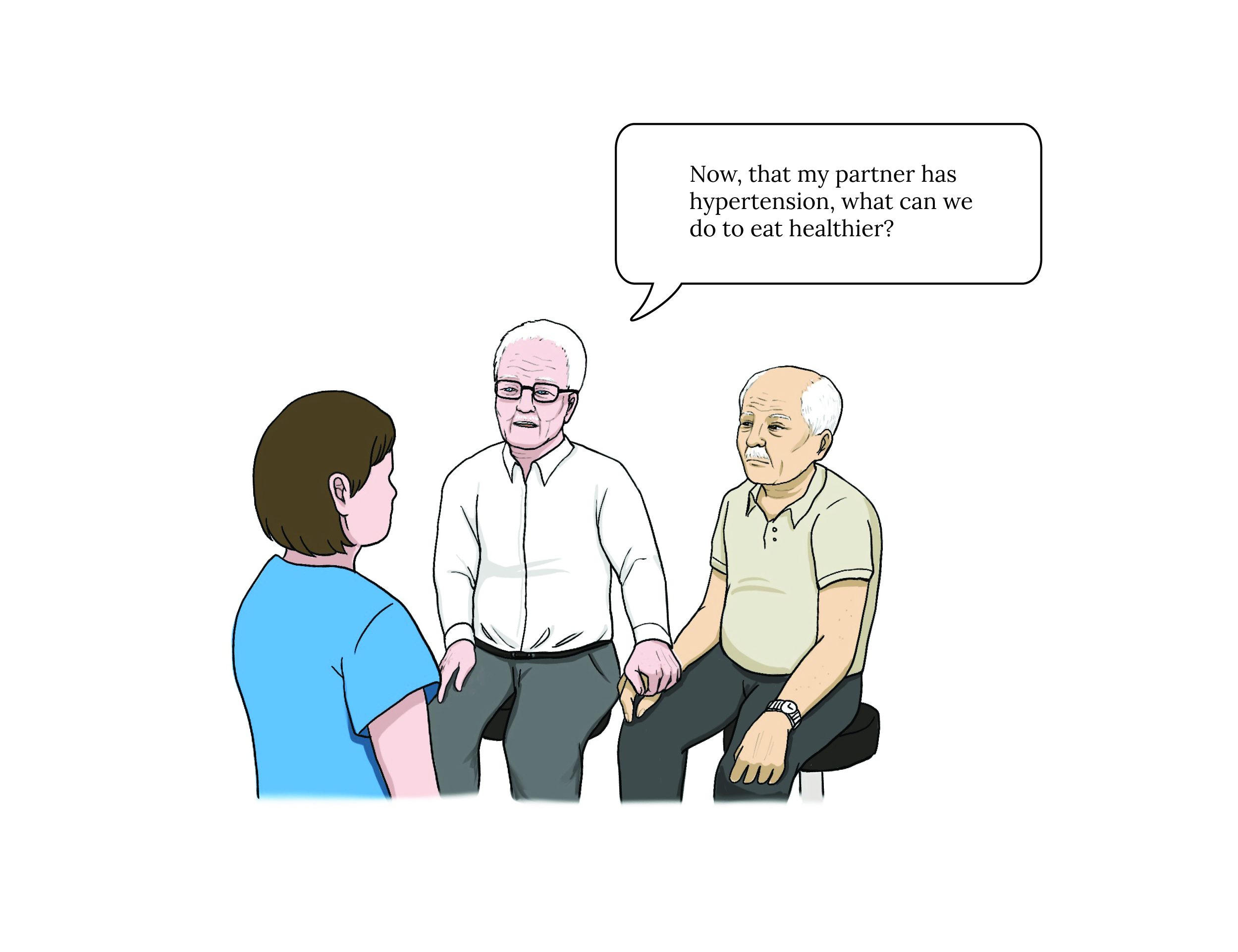Relational Inquiry Approach to the Food Guide
It is unrealistic to expect Canadians to adopt the 2019 food guide without any question or critical examination. As such, as a health professional, you need to think critically and reflexively throughout the phases of the nursing process. This thought pattern involves intentionally examining your own position in the world, and more importantly, the client’s position and social determinants of health. This action is central to the nursing process considering that a person’s positionality influences their identity and experiences, and as a result, their capacity and goals related to eating patterns.
Re-thinking the integration of the food guide into the nursing process using a relational inquiry approach is a beginning step. As an entry-to-practice competency, the College of Nurses of Ontario (2018) has identified relational practice “as the foundation for nursing practice” (p. 4), which is defined by Doane and Varcoe (2015) as assuming each person (including client and nurse) is a relational being who is influenced by those around them, their communities, and social and cultural processes. Health professionals can practice relational inquiry related to the food guide by exploring what is important to the client, as illustrated in Figure 3.4 and demonstrated in Film Clip 3.3.

Film Clip 3.3: Integrating the food guide into the nursing process using a relational inquiry approach
Incorporating a relational inquiry approach to the nursing process can enhance your capacity to think critically and reflexively about your positionality and the client’s positionality. Additionally, this approach promotes iterative discussions with the client about their eating patterns, traditions, and goals. Relational inquiry promotes an active re-positioning of the nursing process so that the client is the driving force of discussions and not the food guide. As such, you collaboratively develop a plan of care with the client that is tailored to their life circumstances and goals.
In the context of nursing, it involves examining the interplay between your positionality, thinking and actions, and how this influences you and the client.
A person’s stance or position related to their beliefs and values.
Assuming each person is a relational being who is influenced by those around them, their communities, and social and cultural processes.
Competencies expected upon graduation and entry into practice and registration with the College of Nurses.

